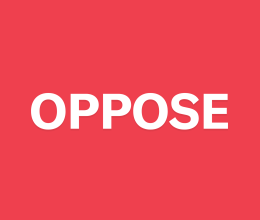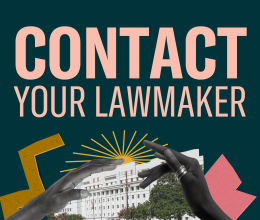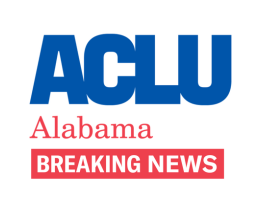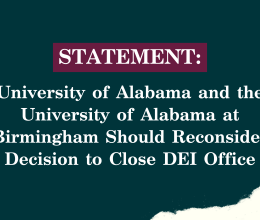
We all remember our favorite childhood book.
Whether it was Harry Potter or Are You There God? It’s Me Margaret, it probably resonated because something about the characters’ experiences felt familiar. Books are portals through which we can imagine embodying the biggest, boldest and most daring version of ourselves. The version who isn’t afraid to stand up against cruelty and fight for what is right.
They are also, for many of us, the first place where we realize that the ideas or feelings that cause us shame are not ours alone to hold.
This is especially important for kids who feel like outsiders. And in Alabama, where just this past legislative session elected officials criminalized gender identity and diversity, equity and inclusion, there are a lot of kids who feel like outsiders.
Now, with Senate Bill 10, these same lawmakers want to limit kids’ access to books. The bill would strip library boards of their independence, requiring members to serve at the pleasure of the bodies who appointed them and now have the power to remove them.
Essentially, the bill allows elected officials to ban books that do not align with their personal worldview.
This list includes books that tell LGBTQIA+ stories, such as Bye, Bye Binary and The Meaning of Pride. It also includes books about divorce, body image, and self-acceptance. Red: A Crayon’s story, which tells the story of a blue crayon whom everyone mistakes as red is also on the banned list.
The bill comes at a critical inflection point as pressure from conservative interest groups has resulted in the unexplained firing of Autauga-Prattville's Library Director, a cascading event that left the library with only nine employees (down from 17 only 10 days ago.) Similarly in Trussville last week, nearly 200 people attended a library board meeting to discuss recent book bans.
Thankfully, there are still groups like Read Freely Alabama who are organizing on behalf of our first amendment rights. They, like we, understand the crucial role books play in childhood development and particularly in helping kids feel less alone.
In Harry Potter, challenged for promoting witchcraft, an outcast discovers the power of friendship and love triumphs over evil. In Are You There God? It’s Me Margaret, challenged for open conversations about sex and for questioning organized religion, a group of girls work through the challenges of puberty and adolescence through friendship and open conversation.
These books have weathered decades of politics to become beloved classics, touching the lives of millions. Our next generation—and particularly our LGBTQIA+ youth—deserve to see themselves similarly represented and to fall in love with themselves through literature.


